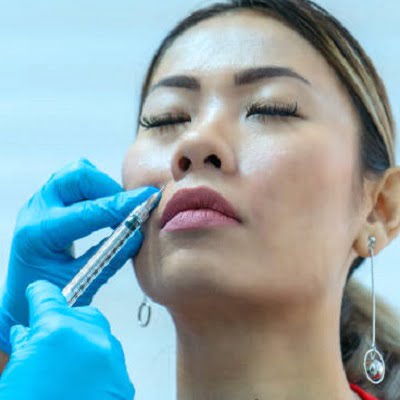Why Choose SKN Cosmetics?
- Personalized filler treatments designed for every skin type, ensuring safe, smooth, and natural-looking results.
- Detailed analysis to understand your skin’s needs and choose the safest, most effective filler technique.
- High-quality fillers and clear pricing for all skin tones and types — no hidden risks or surprises.
- Treatments tailored to your skin texture, tone, and goals for balanced, youthful enhancement.
- Achieve refreshed, glowing skin with results that blend seamlessly with your natural features.
- Safe rejuvenation that supports long-term skin health and boosts your self-confidence.
Do you want to achieve flawless radiance, but your safety concerns are becoming a hurdle in doing so? Are you scared of undergoing fillers because they might cause an allergic reaction or irritation in your skin? Do you have a history of skin inflammation and breakouts, and worry that fillers might worsen it? Indulge in the details of how dermal fillers impact the skin and whether they are safe for all skin types or not.
Are Dermal Fillers Safe for All Skin Types?
Dermal fillers are a revolutionary approach to fading the effects of aging and enhancing the facial contour. These are a powerful non-surgical solution that helps in maintaining and managing different aesthetic concerns. But as their popularity soars, a critical concern emerges among individuals: Are dermal fillers safe for every skin type and tone?
The answer is yes, dermal fillers are safe for every skin type, but they do have some limitations and conditions. The safety of a product does not solely depend on it; many underlying factors are associated with it.
Different Types of Dermal Fillers:
The comprehensive breakdown of different types of fillers and their effect on different skin types according to their composition is given as follows;
| Filler Type | Composition & Mechanism | Safety Profile |
| Hyaluronic acid(HA) | A gel-like formula of hyaluronic acid which are injected to enhance volume in less dense areas. | These types of fillers have the highest biocompatibility across all skin tones. These can be reversible and are well tolerated for darker skin tones. You can take precautions to minimize initial injection trauma to prevent post-inflammatory hyperpigmentation. |
| Calcium hydroxyapatite(CaHA) | Made up of microsphere-based gel that is used to provide immediate lift and stimulate collagen production. | These are highly safe fillers, while there is a minor chance of lumps or nodules forming, which can lead to long-term PIH or discoloration. To prevent these, you can inject them deeper into the skin to avoid the Tyndall effect. |
| Poly-L-lactic acid(PLLA) | It is made up of a biodegradable synthetic polymer, which helps in collagen boost over months and enhances volume gradually. | These are technically safe but possess a higher risk of nodule formation if a high concentration is used or a post-injection message is neglected. These are more sensitive towards the darker skin tones, so they should be carefully injected into them to minimize the risk of PIH. |
| Polymethylmethacrylate(PMMA) | Tiny PMMA microspheres suspended in bovine collagen. It provides immediate collagen and volume. | They pose a high risk because they are not reversible. It requires proper skin testing before injecting, so that the skin is protected from adverse effects and more complex treatments for reversal. |
The Skin Type Spectrum: Does it really Matter?
To consider dermal fillers, it is necessary to understand your skin tone and determine whether your skin is really the ideal candidate for the fillers.
Darker skin types:
Darker skin tones are generally safe for the fillers, but some factors can worsen the effects of fillers, like Injection trauma can trigger the risk of dark spots at the injection site. Keloid scarring can be expected for the individual with a history of keloid. The results can be triggered by the specific product choice and quantity for a specific skin.
Lighter Skin Tones:
Lighter skin tones are more suitable for fillers, but there are some conditions. Very thin, translucent skin can sometimes make filler more visible, especially if a product that is too firm is placed too superficially. Fair skin tends to show bruising and redness more prominently after injections. While this is temporary, it’s a factor to consider when planning for an event.
For All Skin Types:
Oily and thick skin are more beneficial towards fillers, while thin skin requires a more delicate approach to avoid prominence. Individuals with underlying skin conditions like acne, rosacea, or eczema should manage the conditions beforehand to avoid inflammation.
Not sure if fillers suit your skin? Let our experts guide you—book now!
Are you dreaming of a smooth, youthful glow, but unsure what can suit your sensitive skin? Have you been suffering from skin inflammation that might be alarming for your dermal fillers treatments? Reserve your spot now with SKN Cosmetics and understand the best suitable filler for your skin type. Understand the underlying reasons that make the dermal fillers safe for all skin types.




